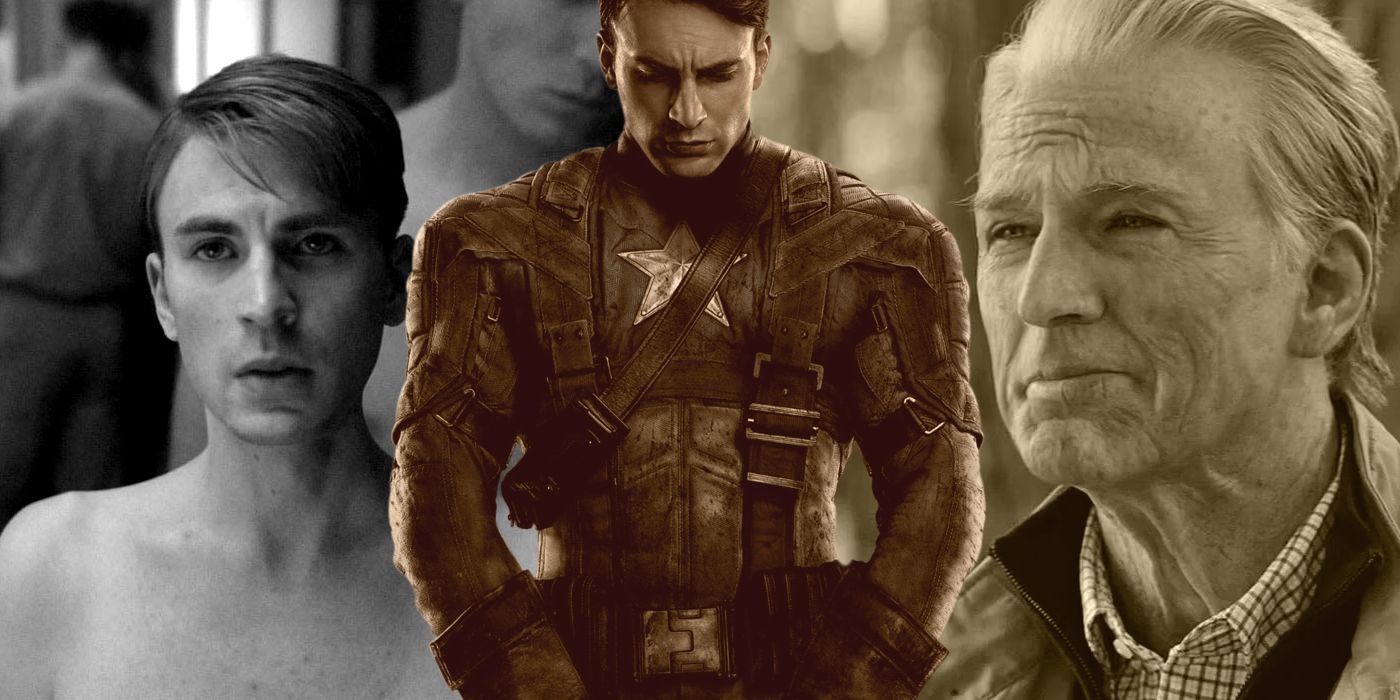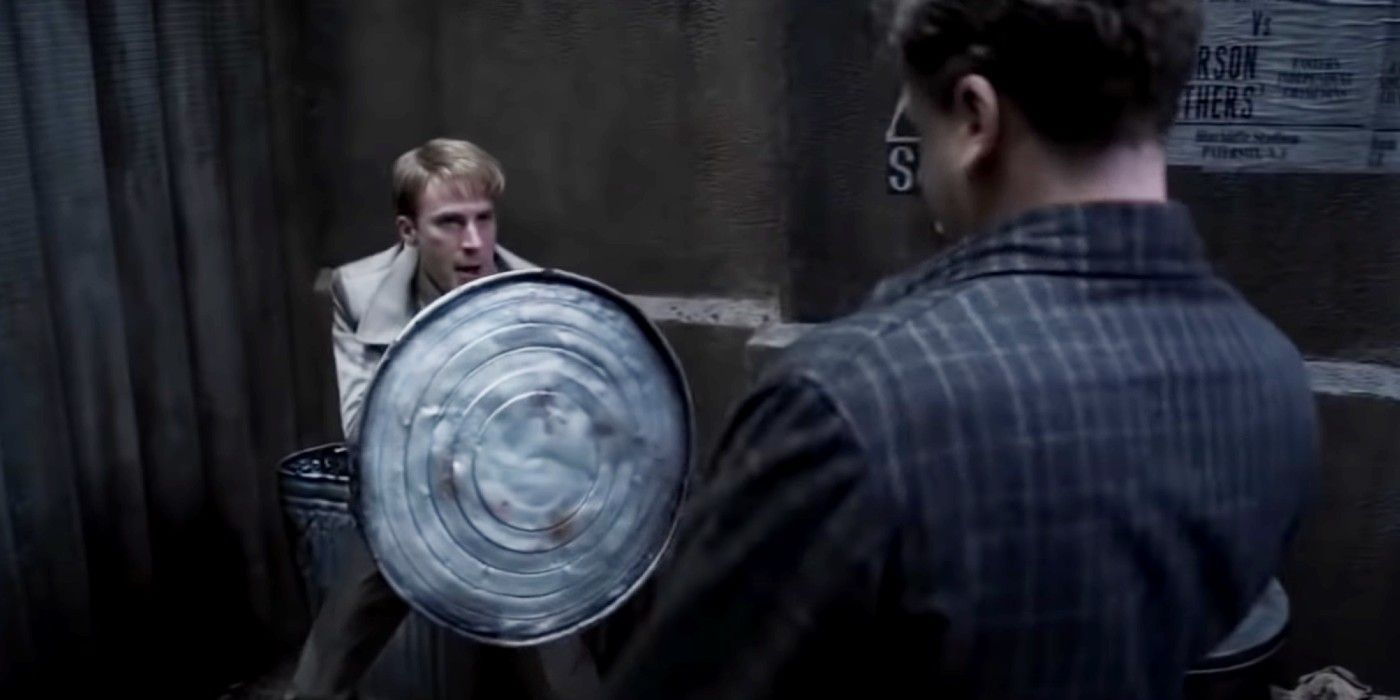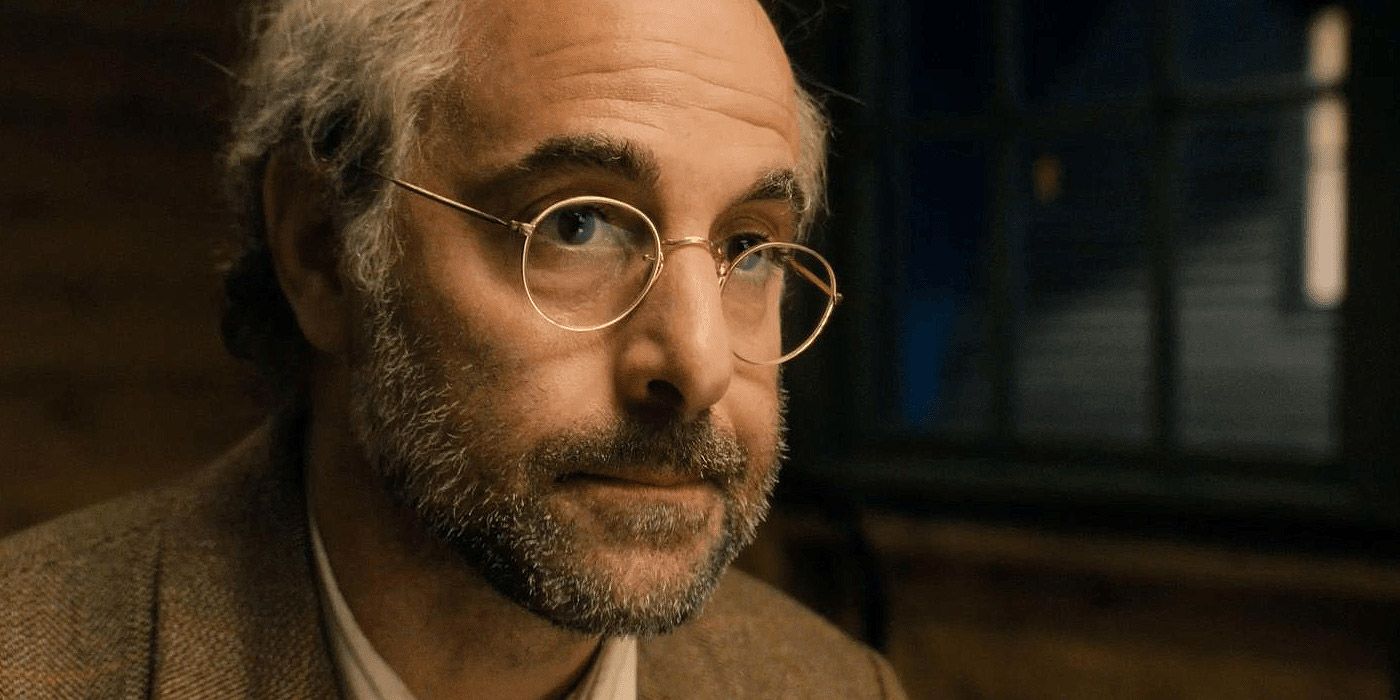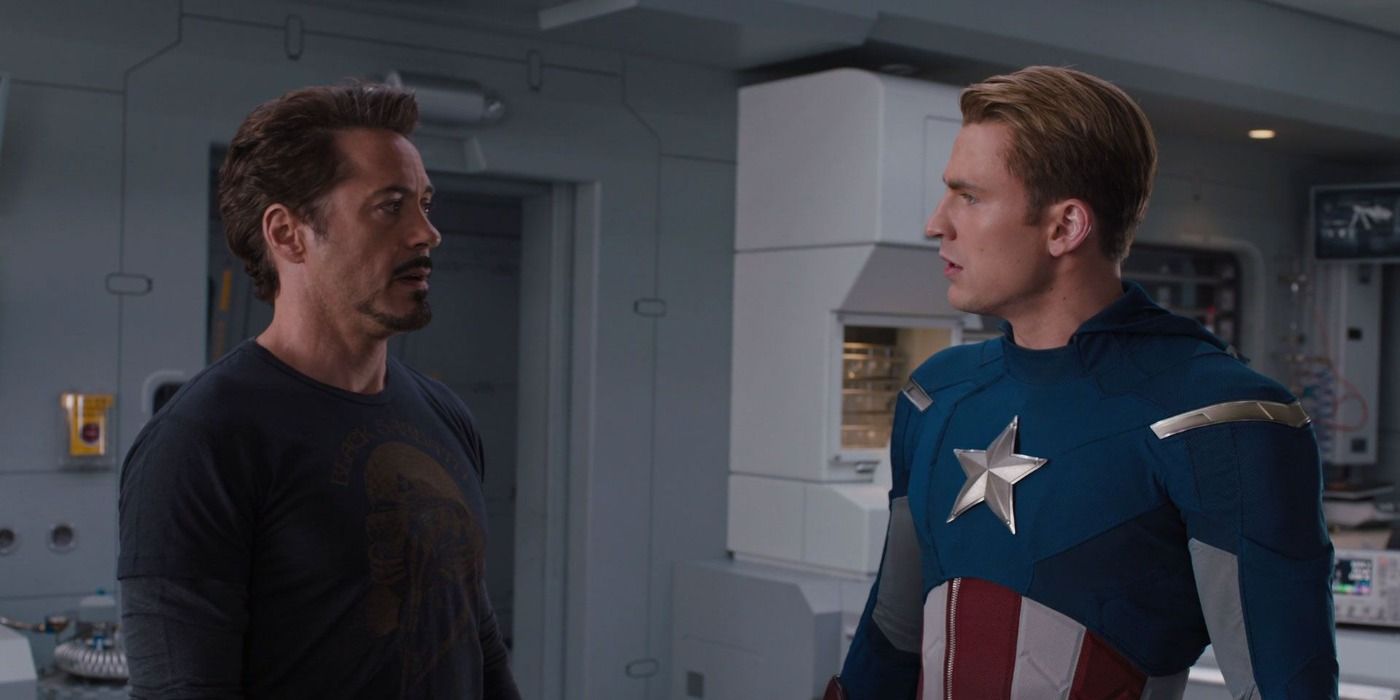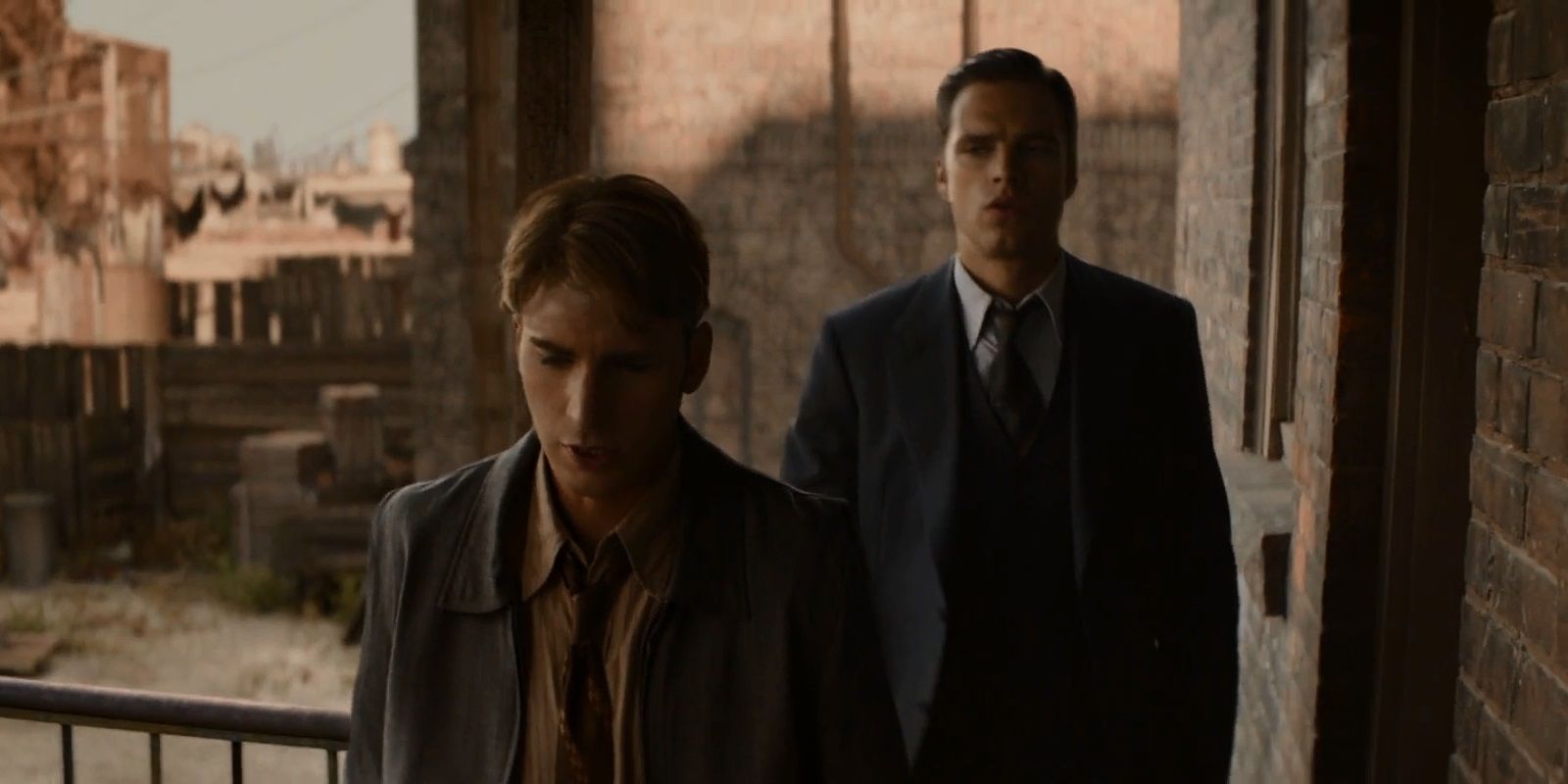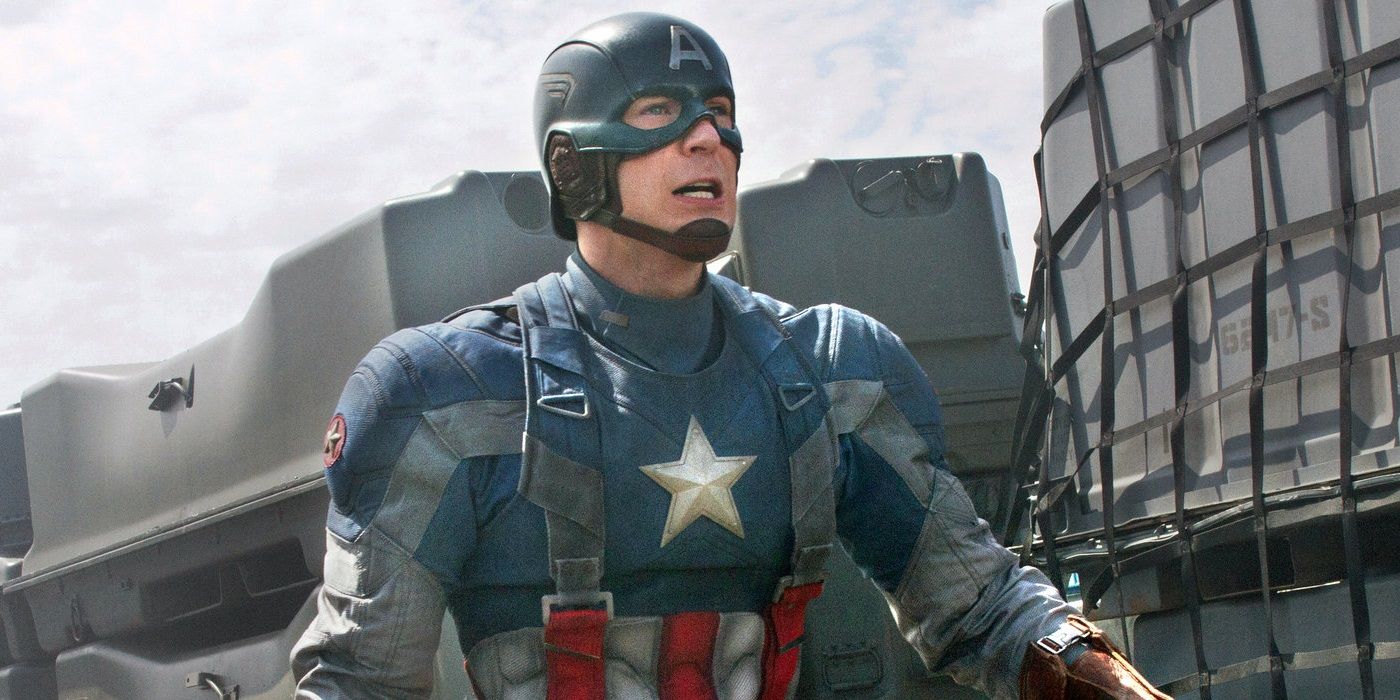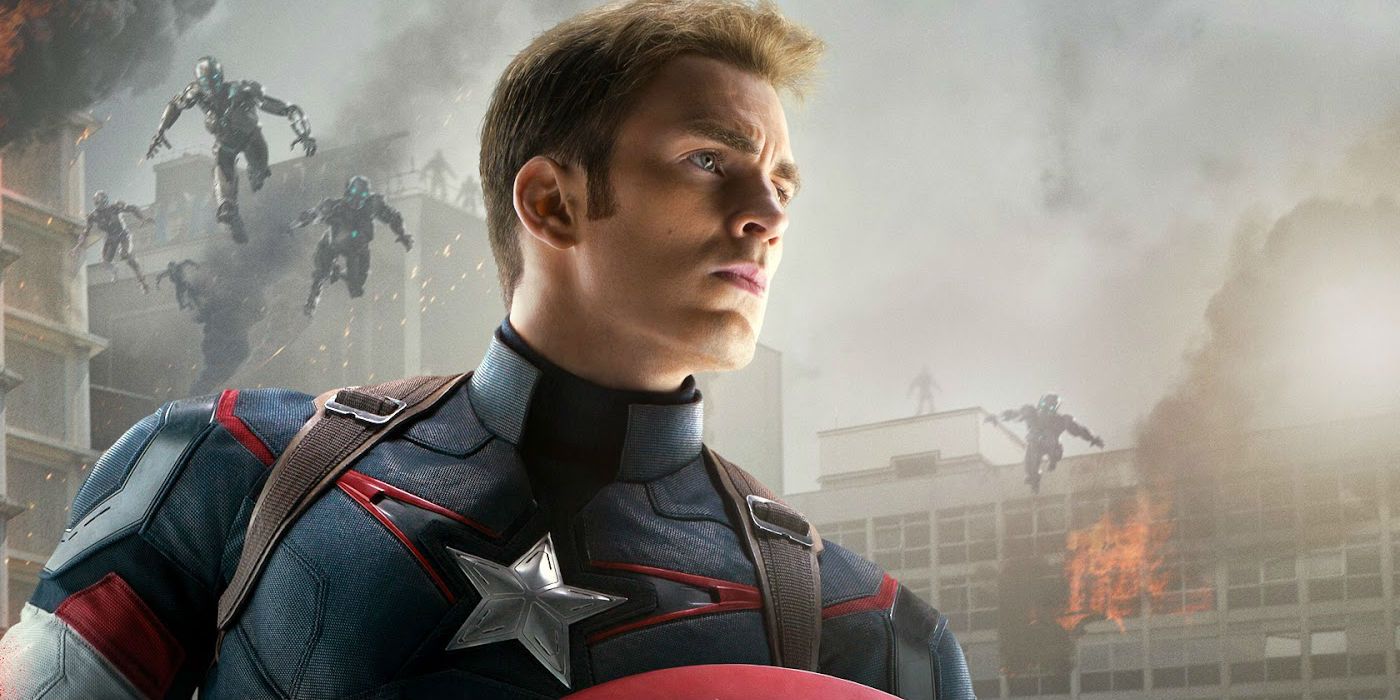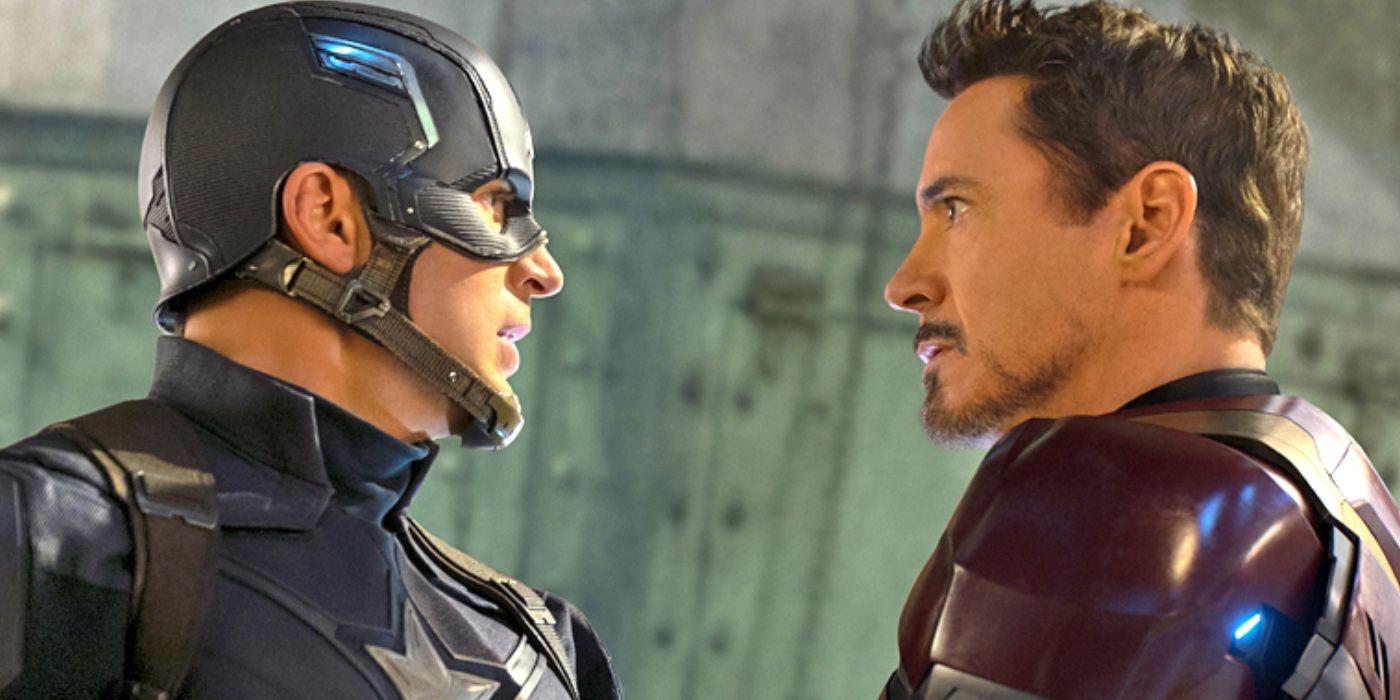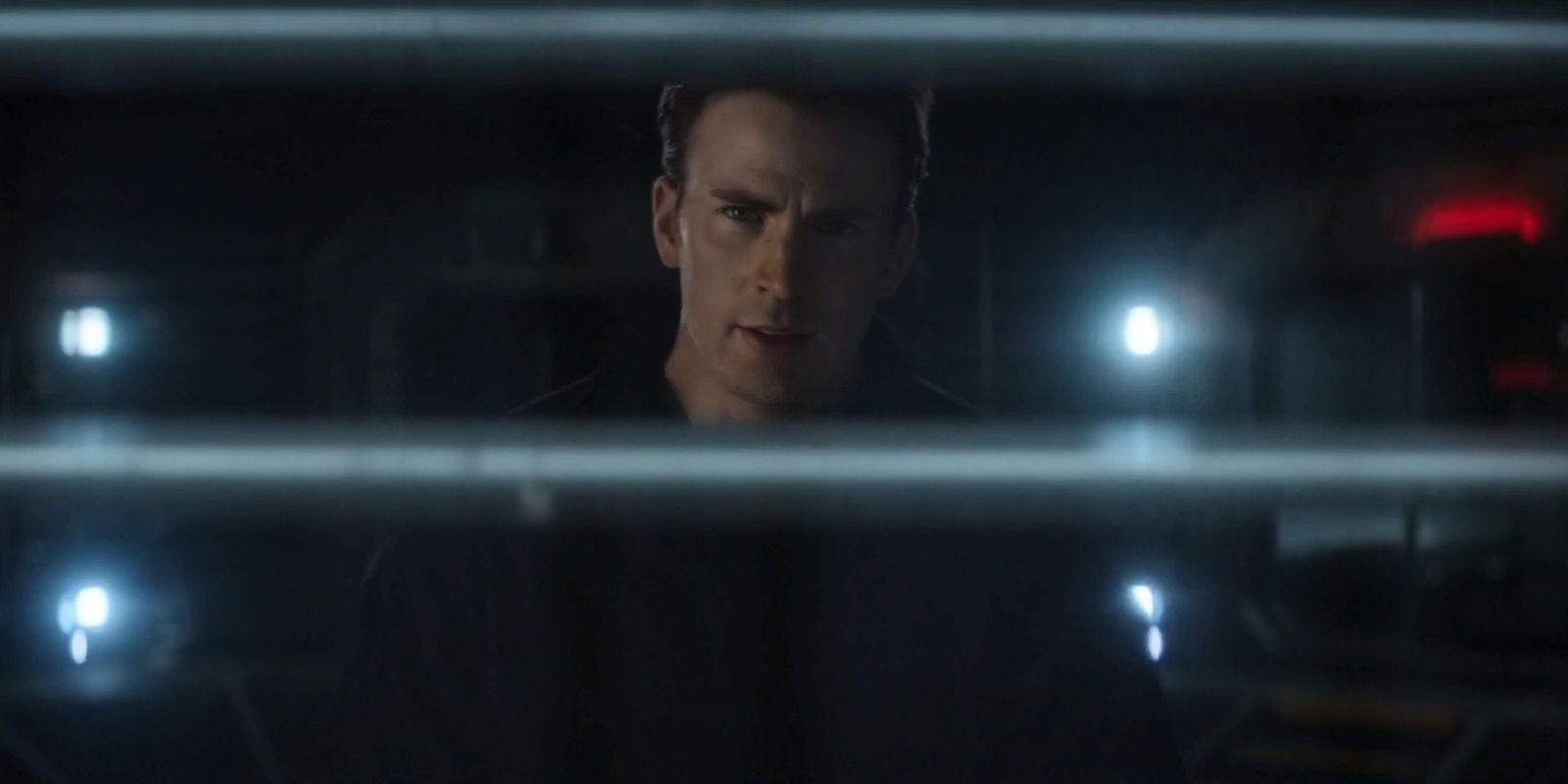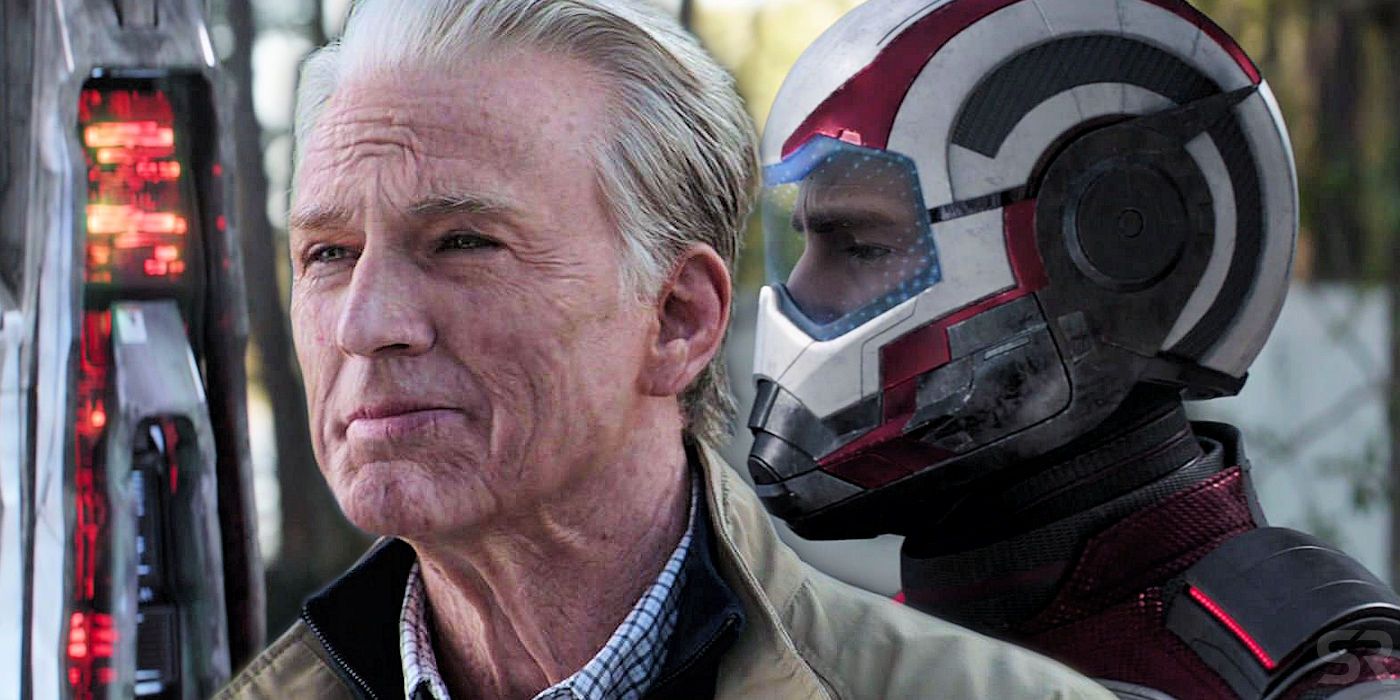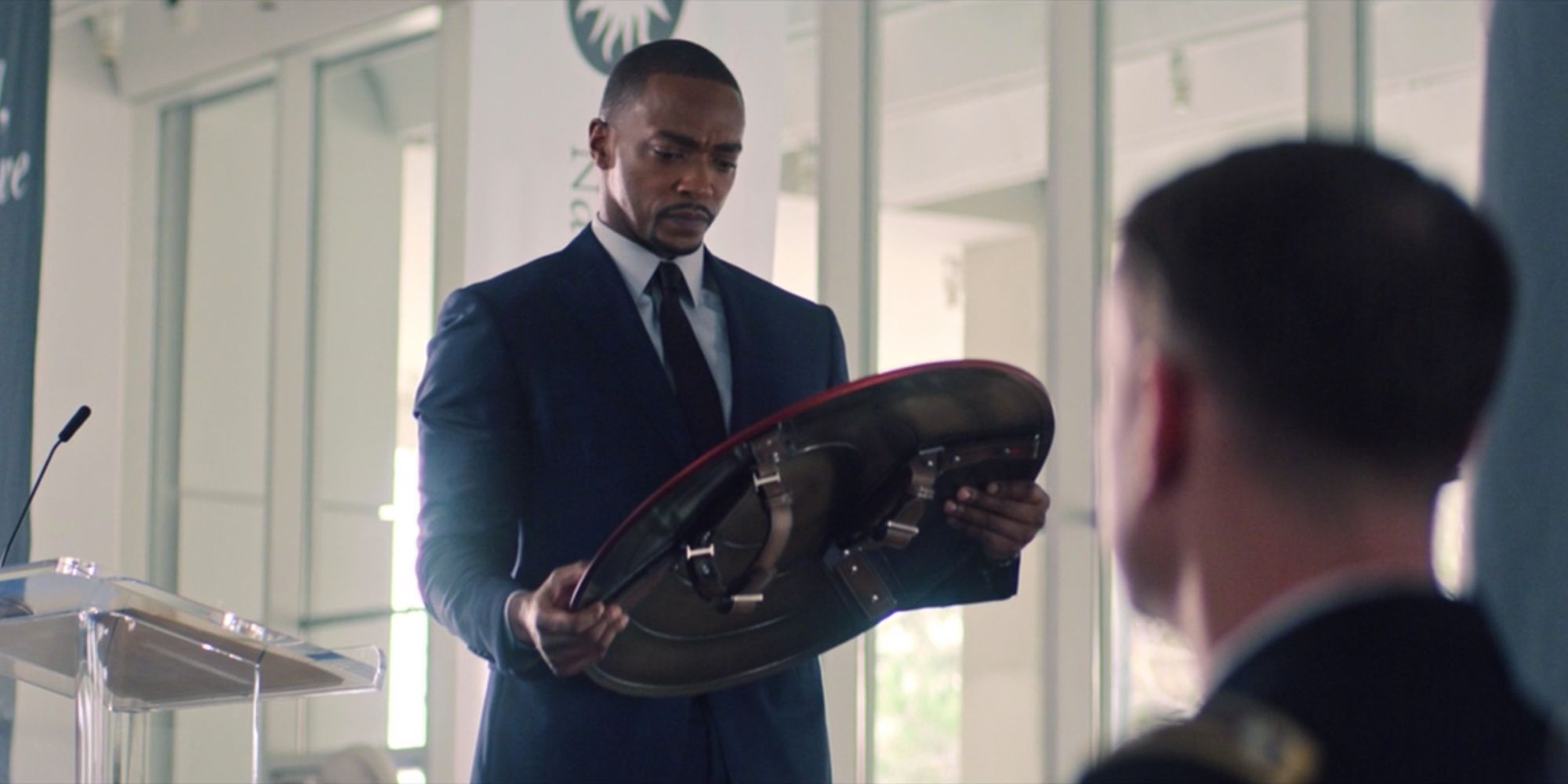With Anthony Mackie talking about Sam Wilson becoming a different Captain America, Steve Rogers left behind a legacy that will continue even after he is gone, especially in his successor's first solo film, Captain America: New World Order. Though the original Captain America now lives the life he yearned for years, his dedication to helping and saving humanity is always acknowledged as he exuded bravery, great leadership, and humility to succeed in his mission.
Steve's journey from a skinny kid growing up in Brooklyn to a super-soldier war veteran and, finally, to a loving husband is particularly poignant now that he has officially retired from the MCU. Several quotes have defined Steve Roger's expansive arc, such as contradicting the naysayers or guiding him to be a better hero.
"I Can Do This All Day"
Steve Rogers, Captain America: The First Avenger
One of Steve Rogers's most memorable (and most repeated) quotes, "I Can Do This All Day" has become somewhat of a slogan for the character in the eyes of many MCU fans. He first says this during the opening act of Captain America: The First Avenger when he is being beaten up in an alleyway.
This line has come to represent Steve's unwillingness to give up, even under the direst circumstances. When faced with the greatest battles of his life, Steve uttered this line, giving himself the strength to fight the odds and emerge victorious in the end.
"Stay Who You Are: Not A Perfect Soldier, But A Good Man."
Dr. Erskine, Captain America: The First Avenger
Just before an event that would change Steve's life forever, Dr. Abraham Erskine — the inventor of the super-soldier serum — explains to Steve why he chose him over any number of other soldiers. He encourages Steve to worry about being a good man before anything else, including being a good soldier.
It is easy to forget over the course of the MCU that Steve was once just a skinny kid from Brooklyn. However, while he transformed physically, he never lost his heart. Erskine's words stuck with him, even decades later, motivating him to care more about what was on the inside than the outside of a person.
"Everything Special About You Came Out Of A Bottle."
Tony Stark, The Avengers
It is no secret that Tony Stark and Steve Rogers did not see eye-to-eye on most matters of interest. During the early days of their working relationship, as depicted in The Avengers, the two argue about each other's merits as a superhero, with Stark claiming that there was nothing inherently special about Rogers.
In the MCU, Steve and Tony pushed each other more than anyone else in the Avengers lineup, each forced to prove the other wrong in their initial assessments. Though Tony claimed that there was nothing inherently special about Steve, he would eventually disprove this theory when Steve wielded Mjolnir against the Mad Titan Thanos, proving himself worthy of the power of Thor.
"I'm With You Till The End Of The Line."
Bucky Barnes, Captain America: The Winter Soldier
Bucky Barnes had a profound impact on Steve during their friendship in the 1930s and '40s. During Captain America: The Winter Soldier, Steve remembers a time shortly after his mother's funeral wherein Bucky promised him that he would always be by his side.
Steve and Bucky's friendship is a focal point of both of their arcs in the MCU, as each was unwilling to abandon the other in his time of need. This line would eventually reemerge at the end of the film, when Steve refused to fight his brainwashed friend.
"The Price Of Freedom Is High."
Steve Rogers, Captain America: The Winter Soldier
After it was revealed that Hydra had infiltrated SHIELD, Steve took it upon himself to call all loyal agents to his aid against the HYDRA villains. During a speech over the intercoms, Steve acknowledges that many who come to his aid may die, but reminds his audience that freedom is worth fighting—even dying—for.
During the course of his life, Cap came to learn the price of freedom himself, sacrificing plenty in order to maintain it. His burden was constantly self-sacrifice, with Steve repeatedly denying himself happiness in order to serve the people of the world.
"Captain America... Pretending You Could Live Without A War."
Ultron, Avengers: Age Of Ultron
After becoming sentient in Avengers: Age of Ultron, the eponymous villain picks apart the psyches of the various Avengers, analyzing them as no villain had ever done before. Pinpointing Captain America, Ultron claims that, though the superhero claims to be "God's righteous man," he is actually bred of war.
Though Steve is certainly one of the most morally upright heroes in the MCU, he will always struggle with his origin. Ultron was correct in his premise that Captain America cannot exist without a war, though Steve fought to prove his worth both in wartime and in peace.
"That Shield Doesn't Belong To You! You Don't Deserve It!"
Tony Stark, Captain America: Civil War
After their very public falling-out in Captain America: Civil War, Tony Stark and Steve Rogers were not on speaking terms for quite some time. Until their eventual reunion, their final interaction involved Tony vehemently claiming that Steve was unworthy of the shield his father had made, prompting his opponent to leave his signature weapon behind.
Tony's words cut Steve deep in this moment, inspiring the next phase of his character development. Steve indeed gave up the mantle of Captain America for the next seven years, having become disillusioned with the title and the symbols which he upheld.
"My Faith's In People, I Guess. Individuals."
Steve Rogers, Captain America: Civil War
During the closing moments of Civil War, the audience hears Steve narrate a note to Tony in which he explains the reasons for his actions during the eponymous conflict. Not willing to put his faith in institutions, Cap explains that he prefers to trust individual people and promises to be there for Tony if he ever needs him.
Steve's refusal to trust institutions over people is a direct product of being burned by such groups before. Having dealt with the fallout of SHIELD's collapse and the subsequent fracturing of the Avengers, Steve came to realize that he could not rely on such coalitions to remain pure but instead grew to trust his friends, who hadn't ever let him down.
"No. I Don't Think I Will."
Steve Rogers, Avengers: Endgame
In the final moments of Avengers: Endgame, Steve makes one final appearance as an old man, having lived out a long life with his true love, Peggy Carter. Leaving Sam to take up his mantle, Steve memorably refuses to elaborate on the details of his married life.
After decades of self-sacrifice and choosing others over himself, Steve finally had something that was all his own in Endgame's closing moments. This line perfectly resembles his new state of being, having retired and carved out a life for himself, one which would remain untouched by the various perils of the world around him. Ultimately, Steve had something that was for him and no one else, the perfect selfish action of a selfless man.
"Symbols Are Nothing Without [Those] Who Give Them Meaning."
Sam Wilson, The Falcon And The Winter Soldier
Steve Rogers' legacy is a focal point of the Disney+ series The Falcon and the Winter Soldier. The first episode sees Sam Wilson put Steve's shield in a museum and giving a speech wherein he discusses the importance of the people who uphold iconic symbols.
One of the most important attributes of Steve Rogers is the effect he had on others. Sam Wilson understands this well, having himself been inspired by Steve's career as Captain America. Though Sam believed himself unworthy of Steve's title, his own self-doubt proved he was indeed the only person capable of becoming the new Captain America, as he was the one who fully respected the title and all it stands for.

